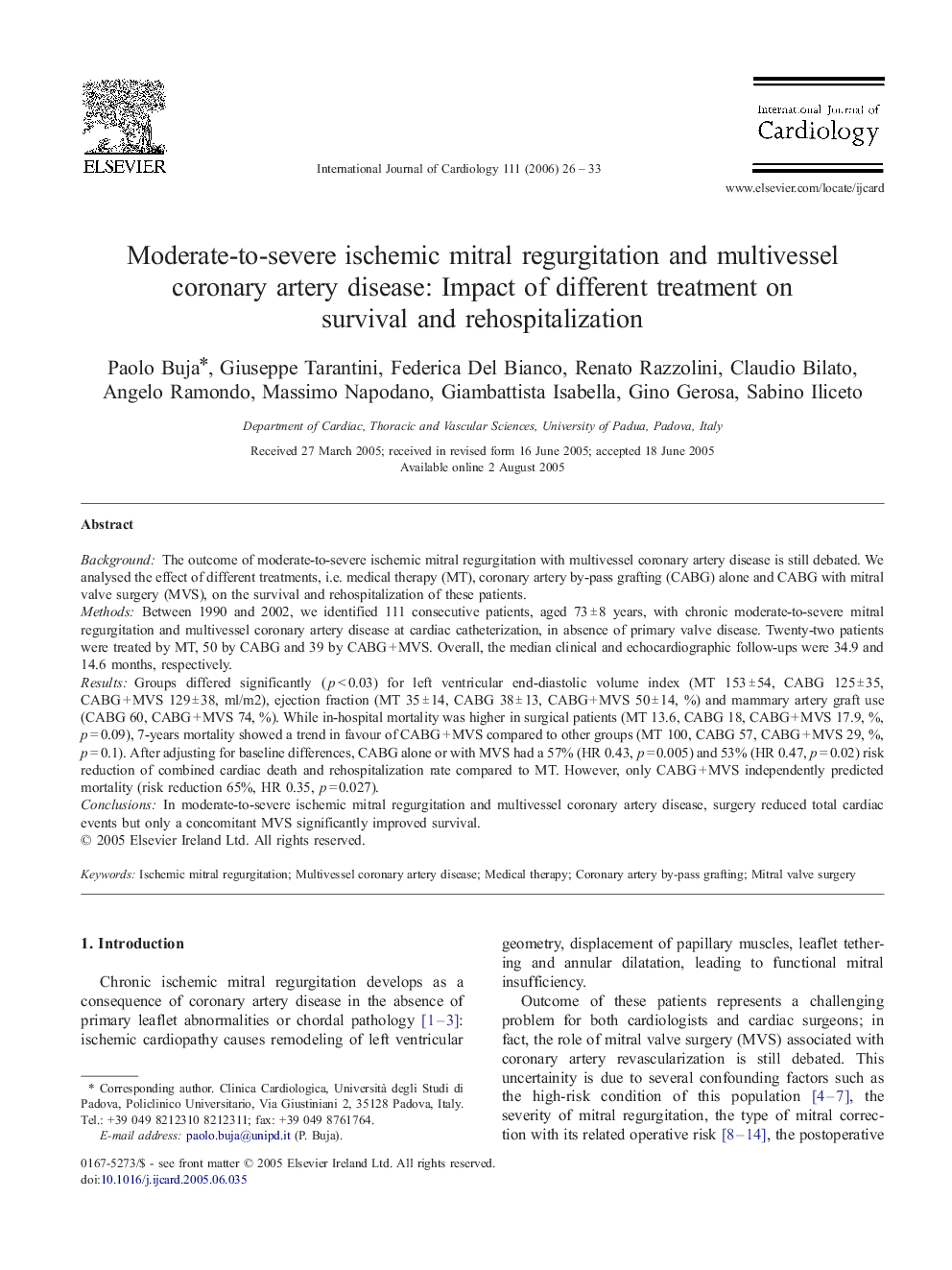| Article ID | Journal | Published Year | Pages | File Type |
|---|---|---|---|---|
| 2935731 | International Journal of Cardiology | 2006 | 8 Pages |
BackgroundThe outcome of moderate-to-severe ischemic mitral regurgitation with multivessel coronary artery disease is still debated. We analysed the effect of different treatments, i.e. medical therapy (MT), coronary artery by-pass grafting (CABG) alone and CABG with mitral valve surgery (MVS), on the survival and rehospitalization of these patients.MethodsBetween 1990 and 2002, we identified 111 consecutive patients, aged 73 ± 8 years, with chronic moderate-to-severe mitral regurgitation and multivessel coronary artery disease at cardiac catheterization, in absence of primary valve disease. Twenty-two patients were treated by MT, 50 by CABG and 39 by CABG + MVS. Overall, the median clinical and echocardiographic follow-ups were 34.9 and 14.6 months, respectively.ResultsGroups differed significantly (p < 0.03) for left ventricular end-diastolic volume index (MT 153 ± 54, CABG 125 ± 35, CABG + MVS 129 ± 38, ml/m2), ejection fraction (MT 35 ± 14, CABG 38 ± 13, CABG + MVS 50 ± 14, %) and mammary artery graft use (CABG 60, CABG + MVS 74, %). While in-hospital mortality was higher in surgical patients (MT 13.6, CABG 18, CABG + MVS 17.9, %, p = 0.09), 7-years mortality showed a trend in favour of CABG + MVS compared to other groups (MT 100, CABG 57, CABG + MVS 29, %, p = 0.1). After adjusting for baseline differences, CABG alone or with MVS had a 57% (HR 0.43, p = 0.005) and 53% (HR 0.47, p = 0.02) risk reduction of combined cardiac death and rehospitalization rate compared to MT. However, only CABG + MVS independently predicted mortality (risk reduction 65%, HR 0.35, p = 0.027).ConclusionsIn moderate-to-severe ischemic mitral regurgitation and multivessel coronary artery disease, surgery reduced total cardiac events but only a concomitant MVS significantly improved survival.
